Nori Human PICP ELISA Kit
$461.00 – $832.00
This ELISA kit is for quantification of PICP in human. This is a quick ELISA assay that reduces time to 50% compared to the conventional method, and the entire assay only takes 3 hours. This assay employs the quantitative sandwich enzyme immunoassay technique and uses biotin-streptavidin chemistry to improve the performance of the assays. An antibody specific for PICP has been pre-coated onto a microplate. Standards and samples are pipetted into the wells and any PICP present is bound by the immobilized antibody. After washing away any unbound substances, a detection antibody specific for PICP is added to the wells. Following wash to remove any unbound antibody reagent, a detection reagent is added. After intensive wash a substrate solution is added to the wells and color develops in proportion to the amount of PICP bound in the initial step. The color development is stopped, and the intensity of the color is measured.
Alternative names for PICP: Procollagen type I carboxy-terminal propeptide
This product is for laboratory research use only, not for diagnostic and therapeutic purposes or any other purposes.
- Description
- How Elisa Works
- Product Citations
- Reviews (0)
Description
Nori Human PICP ELISA Kit Summary
Alternative names for PICP: Procollagen type I carboxy-terminal propeptide
| Assay Type | Solid Phase Sandwich ELISA |
| Format | 96-well Microplate or 96-Well Strip Microplate |
| Method of Detection | Colorimetric |
| Number of Targets Detected | 1 |
| Target Antigen Accession Number | na |
| Assay Length | 3 hours |
| Quantitative/Semiquantitative | Quantitative |
| Sample Type | Plasma, Serum, Cell Culture, Urine, Cell/Tissue Lysates, Synovial Fluid, BAL, |
| Recommended Sample Dilution (Plasma/Serum) | No dilution for sample <ULOQ; sufficient dilution for samples >ULOQ |
| Sensitivity | 150 pg/mL |
| Detection Range | 0.78-50 ng/mL |
| Specificity | Human PICP |
| Cross-Reactivity | < 0.5% cross-reactivity observed with available related molecules, < 50% cross-species reactivity observed with species tested. |
| Interference | No significant interference observed with available related molecules |
| Storage/Stability | 4 ºC for up to 6 months |
| Usage | For Laboratory Research Use Only. Not for diagnostic or therapeutic use. |
| Additional Notes | The kit allows for use in multiple experiments. |
Standard Curve
Kit Components
1. Pre-coated 96-well Microplate
2. Biotinylated Detection Antibody
3. Streptavidin-HRP Conjugate
4. Lyophilized Standards
5. TMB One-Step Substrate
6. Stop Solution
7. 20 x PBS
8. Assay Buffer
Other Materials Required but not Provided:
1. Microplate Reader capable of measuring absorption at 450 nm
2. Log-log graph paper or computer and software for ELISA data analysis
3. Precision pipettes (1-1000 µl)
4. Multi-channel pipettes (300 µl)
5. Distilled or deionized water
Protocol Outline
1. Prepare all reagents, samples and standards as instructed in the datasheet.
2. Add 100 µl of Standard or samples to each well and incubate 1 h at RT.
3. Add 100 µl of Working Detection Antibody to each well and incubate 1 h at RT.
4. Add 100 µl of Working Streptavidin-HRP to each well and incubate 20 min at RT.
5. Add 100 µl of Substrate to each well and incubate 5-30 min at RT.
6. Add 50 µl of Stop Solution to each well and read at 450 nm immediately.
Background:
Procollagen type I carboxy-terminal propeptide (PICP) is a cleaved fragment of Collagen type I that is the sole collagen type found in bones and tendons. Carboxyterminal propeptide, deriving and cleaved from PICP during collagen synthesis, is delivered into the blood, where it can be measured. PICP correlates with bone collagen synthesis and bone formation rate. Elevated serum levels of PICP in patients with Paget’s disease, compared with normal subjects and correlated with serum alkaline phosphatase (Alk.Ph.), have been previously described. PICP is a marker of osteoblastic bone metastases.[1] Serum carboxy-terminal propeptide of procollagen type I is a marker of myocardial fibrosis in hypertensive heart disease.[2]
References
- Francini G, et al. (1993) Cancer Epidemiol Biomarkers Prev. 2(2):125-9.
- Querejeta R, et al. (2000) 101(14):1729-35.
Be the first to review “Nori Human PICP ELISA Kit”
You must be logged in to post a review.























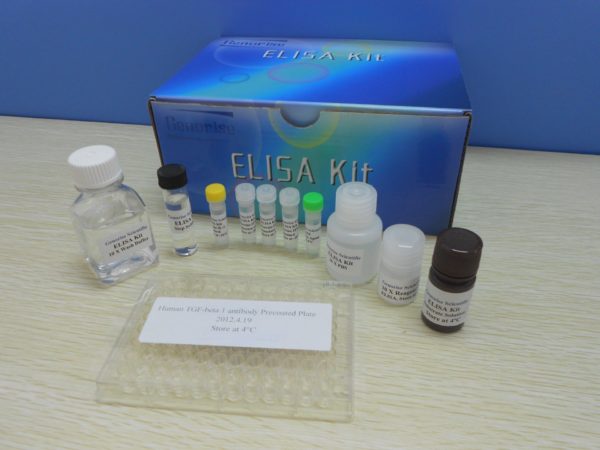
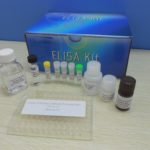
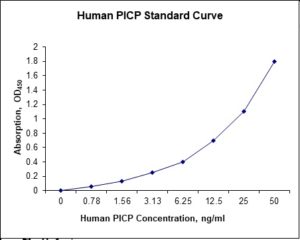
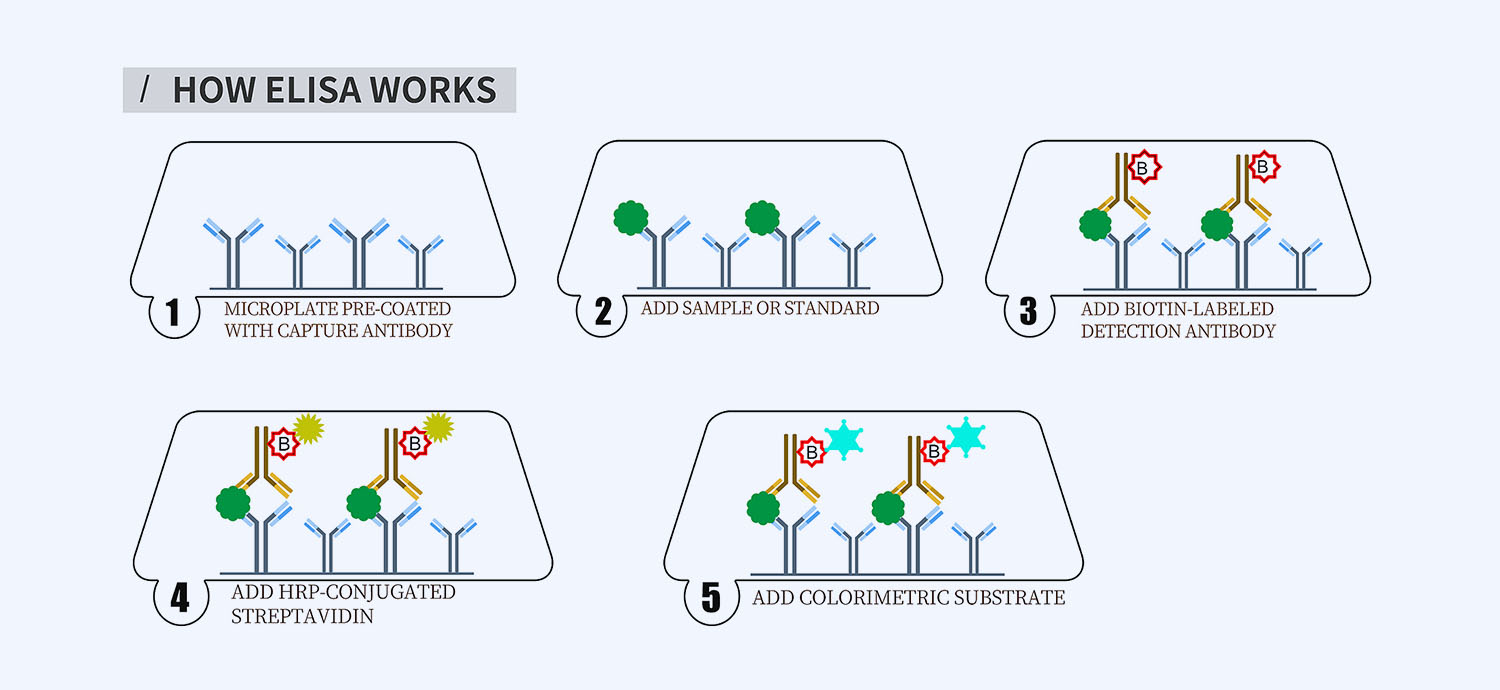
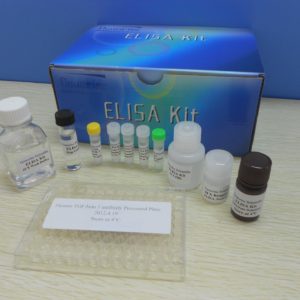
Reviews
There are no reviews yet.